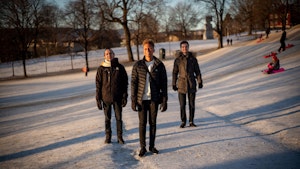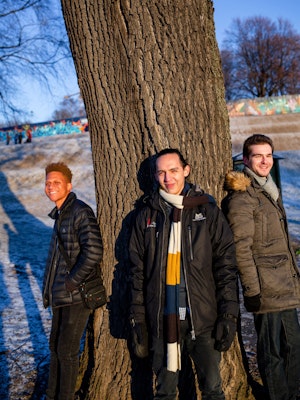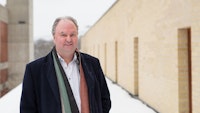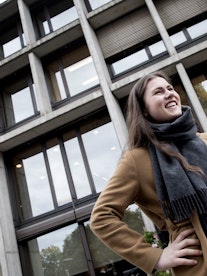“I got help from so many people. If you had told me a year ago that I would be able to come here, I would have said that it was impossible – not a chance.”
He ended up with nearly three thousand dollars, including one thousand from an anonymous donor whose identity remains a mystery to him.
“If it hadn’t been for that person I wouldn’t have been able to buy the plane ticket.”
You had to celebrate, didn’t you?
“Yes, but it’s when it seems farthest away that you’re most geared up. When it actually happens you realise it more gradually. Even though I’m here now, I can still hardly believe it.”
Optimism
“I don’t want to stay in one place too long,” says Uviwe Caso, who regards the influences from other musical cultures as the most important part of his musical journey.
“I want to learn jazz from as many cultures as possible, experience the differences and be able to compare. The more we musicians listen, explore and let ourselves be affected by different sounds, the more we can define our own sound.”
Levan Chkhaidze didn’t lose his nerve when he lost his place in the Master’s programme. He has already applied again, and will audition in March together with several other applicants. His dream is to play in an orchestra.
“In the Oslo Philharmonic, for instance,” he says, with a twinkle in his eye.
Eduardo Villamizar will also apply for a place as a regular student. He says that for Venezuelans, getting out of the country is at the top of the list. Also for family members that have remained there, because then they can get financial help. That is how most people in Venezuela get by, according to Villamizar. It doesn’t matter if you are a professor or a doctor.
“Most people want to get out. And they can’t or don’t want to go back.”
He feels at home in Norway after only a few weeks, and makes a list: He already has both Norwegian and Venezuelan friends; school is fantastic; there are a lot of good things going on. Compared with the situation at home, he doesn’t find remote learning difficult, and he dreams of conducting his own choir, playing chamber music and composing – simply being a versatile musician.
“I think I’m going to be very happy here,” he says with a smile.








